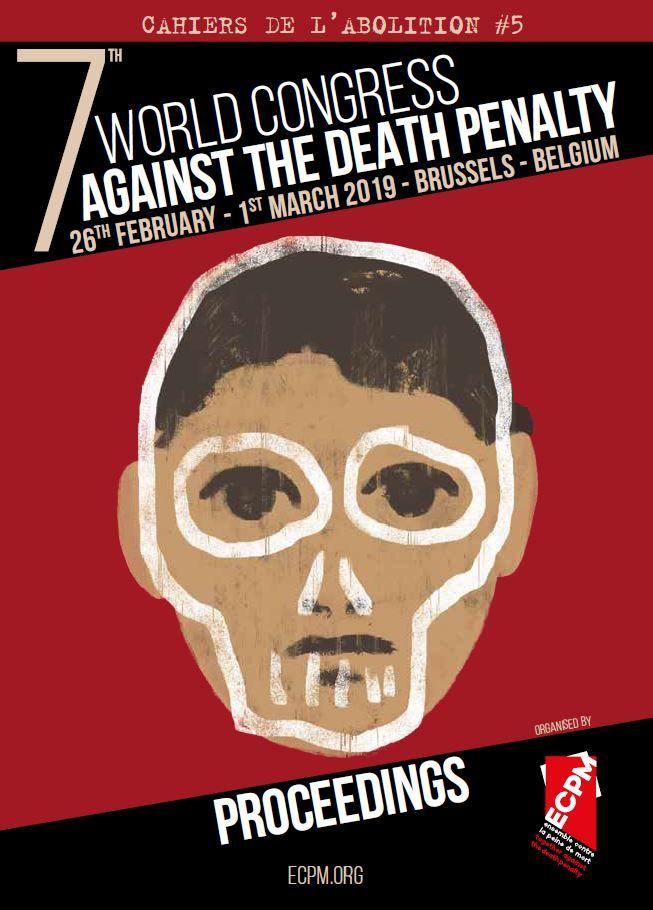Spotlight on the 7th World Congress against the Death Penalty

The Congress was organised by ECPM (Ensemble Contre la Peine de Mort) in partnership with the World Coalition Against the Death Penalty and sponsored by the EU, Belgium, the Switzerland, Norway and Australia. It was held in Brussels from 26 February to 1 March 2019.
"The 7th World Congress was a strong demonstration of the universality and of the importance of the movement towards a world free of death penalty. The Congress, marked by intense and passionate debates by so many political leaders, officials, academics and, above all, activists, on such a variety of aspects of abolition, was a demonstration of the universality and of the importance of this movement towards a world free of death penalty. A world free of an inhuman, degrading and cruel punishment," said Ambassador Walter Stevens, Head of the EU Delegation to the UN in Geneva, when opening the event.
https://twitter.com/EU_UNGeneva/status/1172062653591805952
The EU is proud for contributing to this joint effort, enabling the continuous progress towards the Universal abolition over the last half century. Most governments in the world already abolished the death penalty for all crimes at a historically unprecedented rate and we witness a growing awareness about the importance of continuing abolishing the death penalty.
Over the last decades, the use of capital punishment has declined significantly. A total of 146 countries are free of death penalty, which represents 75% (three quarters) of the number of countries in the world, across continents, and belonging to different cultures, different religions and different political orientations.
Ambassador Geert Mylle of Belgium, a country very active on the abolition of the death penalty, reminded that despite positive trends, the fight against the death penalty has to be continued. "The work is not done," he said.
https://twitter.com/EU_UNGeneva/status/1172064294663532545
Raphael Chenuil-Hazan, Executive Director of ECPM, introduced the works of the 7th World Congress, which gathered more than 1500 activists, politicians, diplmats, parliamentarians, lawyers, researchers and students, coming from all five continents.
https://twitter.com/AssoECPM/status/1172069964439851008
The 7th World Congress focussed in particular on the links between the private sector and the abolitionist movement, as well as the remarkable positive developments, which have been made in sub-Saharan Africa in recent years. Ambassador Eloi Laourou of Benin described the efforts made in his country. The National Assembly of Benin has taken an important step in 2018 adopting a new Criminal Code removing all reference to the death penalty. Isidore Collins Ngueuleu, Human Rights Advisor for Africa Region of the World Organisation Against Torture also highlighted the potential role of the private sector in Africa when it comes to promoting the abolition of the death penalty or torture-free trade.





